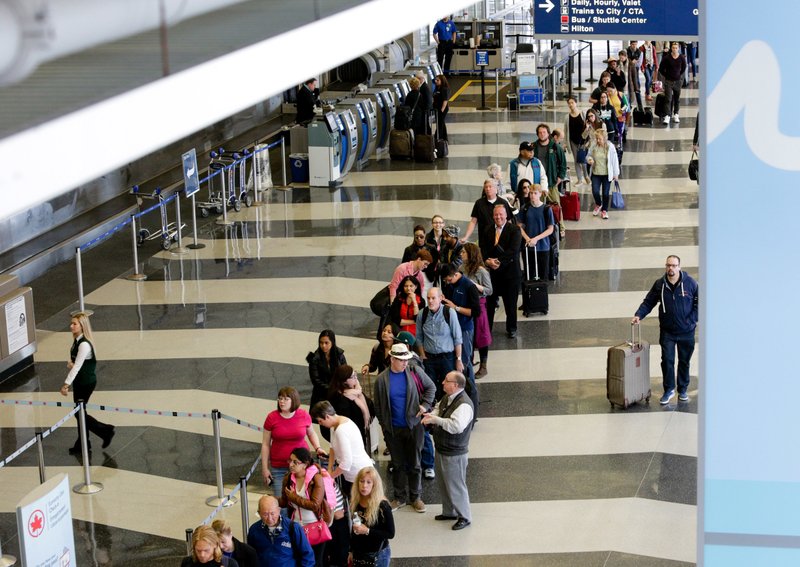WASHINGTON -- The Transportation Security Administration has ousted its head of security operations and put new leadership in charge of screening operations at one of the world's busiest airports in an attempt to address long checkpoint lines and travel headaches pervading the busy summer travel season.
Kelly Hoggan was removed from his post as the agency's top security official Monday and replaced by Darby LaJoye, a former federal security director in Los Angeles and New York.
Hoggan's ouster and a new management team in charge of screening operations at Chicago O'Hare International Airport were announced Monday after a series of Capitol Hill hearings focused on allegations of agency mismanagement and growing concerns about airport wait times.
The issue came to a head in recent weeks when thousands of passengers in Chicago missed flights because of lengthy wait times.
But the management moves don't appear to fix the primary problem: The transportation agency doesn't have enough security screeners to quickly screen growing crowds of travelers and their sometimes overstuffed carry-on luggage.
Agency Administrator Peter Neffenger has said the problem was created by a combination of factors, including that more people are flying this year and fewer than anticipated have applied for the government's PreCheck program, which allows passengers to move through security faster after submitting to a background check.
In a memo to the transportation agency's senior leadership, Neffenger said the management shake-up and other changes "will enable more focused leadership and screening operations at critical airports in the national transportation system."
Neffenger also said the agency will open an incident comment center that "will closely track daily screening operations, shifting officers, canine resources, the National Deployment Force and other resources to meet mission demands in advance of predicted passenger volume."
Last month, Neffenger told reporters that the agency had also stepped up its hiring and training to put more security officers at checkpoints as quickly as possible and expects to have 768 new screeners on staff by mid-June.
Homeland Security Secretary Jeh Johnson, who oversees the federal agency and has addressed the security line delays in recent weeks, told National Public Radio on Tuesday that the agency's officers are being moved to staff checkpoints at the busiest airports at the busiest times.
But that is a stopgap measure.
Johnson and some senators have also asked that airlines temporarily reduce or eliminate fees for checked bags to cut down on the amount of bags that security screeners have to inspect at checkpoints.
Airlines have balked at the suggestion that bag fees have caused the long lines and instead blamed the problems on federal budget cuts and a reduction in screeners.
Johnson said the agency won't relax its security efforts in favor of shorter lines, but it is working with airports and airlines to allow their employees to help with some non-security issues at the checkpoints.
Johnson said the average wait time nationally at regular security lines is about 30 minutes, while the expedited PreCheck lines have an average wait of about 5 minutes.
But those national averages come as little relief for travelers at some of the largest and busiest airports, so the transportation agency is still advising that passengers plan ahead.
Lawmakers have also been pressing the agency to address allegations of mismanagement.
The House oversight committee said Hoggan received more than $90,000 in bonuses over a period from late 2013 to late 2014, despite growing concerns about the agency's operations.
About a year later, a report from the Homeland Security Inspector General's office revealed that agency employees failed to find explosives, weapons and other dangerous items in more than 95 percent of covert tests at multiple U.S. airports.
The transportation agency did not say where Hoggan has been reassigned.
A Section on 05/25/2016
